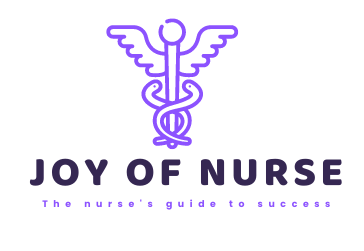Do you want to know the criteria for qualifying for skilled nursing care? Are any of your loved ones suffering from complex medical problems, and you want their treatment under skilled nursing care? Well, we are here to tell you how to do it.
Ongoing treatment of any complex medical condition, injury, or rehabilitation qualifies a patient for skilled nursing care. Here we will explain everything related to it, including the provided services, its levels, etc. Moreover, we will also share how to select the best care facility for yourself.
Reading this detailed blog post will enable you to know whether you are eligible for any skilled nursing care facility or not. Let’s check out its details and help you get the care you deserve.
What Is Skilled Nursing Care?
Skilled nursing care can be like having your own team of healthcare superheroes by your side. Imagine an environment in which trained professionals, like nurses and therapists, collaborate to deliver top-of-the-line medical attention—more than just an ordinary nursing home; here, staff have the additional skills and knowledge needed to assist with complex health concerns.
Experts who provide personalized post-surgery recovery care or manage chronic illnesses provide exceptional assistance, ensuring they get the assistance needed at every point along the path towards healing. It is this form of assistance that goes above and beyond, giving you peace of mind knowing you’re being taken care of on the road to recovery.
Necessary Patient Qualifications for Skilled Nursing Care
To better understand the necessary qualifications, we have divided this section into two sections. One is the recent medical issues of the patients, and the other covers the daily needs of the patients. If your patient falls under either one, you are eligible for skilled nursing care.
Recent Medical Issues:
- Skilled nursing care facilities are tailored for individuals recovering from recent medical challenges.
- Patients who have suffered severe illnesses or injuries like heart attacks, strokes, or fractures from falls qualify for specialized care.
- Bridge Care Suites offers certified therapists and nurses to aid in the recovery process during a short-term stay.
- Round-the-clock access to certified professionals ensures comprehensive support for the patient’s full recovery.
Regular Daily Care Needs:
- Skilled nursing care is essential for patients requiring ongoing daily care that surpasses what home care can provide.
- Access to trained professionals 24/7 is a key feature of these facilities.
- Qualified nurses offer a range of intricate services, including post-operative wound care, monitoring intravenous medications, administering specialized injections, managing catheters, incontinence, and colostomy care.
- Other services encompass tube feedings, diabetic control, continuous monitoring of vital signs and medical equipment, as well as specialized therapy and hospice care.
Services of Skilled Nursing Care
Skilled nursing care encompasses a lot of medical services designed to meet individual needs. Here we will look at the most prominent one among them. This includes senior speech therapy, senior physical therapy, and occupational therapy. Let’s take a look at the details of these services.
Senior Speech Therapy
Senior speech therapy is an integral component of skilled nursing care, specifically targeting communication and swallowing disorders often seen among older individuals. The goal is to increase verbal communication skills while improving quality of life. Speech therapists work directly with their patients to overcome speech obstacles while improving cognitive functions related to language use.
Senior Physical Therapy
Senior physical therapy within skilled nursing care aims to enhance mobility, strength, and overall physical function in older individuals. This targeted therapy promotes greater independence and well-being for the recipient. Physical therapists assess patients’ mobility needs before creating personalized exercise regimens that relieve pain while improving overall physical functioning.
Occupational Therapy
Occupational therapy in skilled nursing care aims to assist an individual in performing everyday tasks more easily and regaining their independence, such as self-care, cooking, and mobility activities. Occupational therapists collaborate with patients to design personalized plans that incorporate adaptive techniques and assistive devices for an enhanced quality of life.
The Difference Between Skilled Nursing Care and a Nursing Home
Although both skilled nursing care and nursing homes provide residential care services, there are distinct differences. Skilled nursing care facilities are equipped to offer advanced medical services by licensed professionals, with rehabilitation and specialized treatment plans as the focus.
Nursing homes typically provide custodial care, assisting residents with daily activities while lacking the medical expertise found in skilled nursing facilities. Skilled nursing care caters to individuals who have complex medical needs requiring continued medical attention and rehabilitation, while nursing homes tend to focus more on individuals who need help with daily activities but do not necessarily require specialized medical treatment.
How Do You Choose a Skilled Nursing Facility?
Finding the appropriate skilled nursing facility requires careful consideration of various factors, including reputation, staff qualifications, available services, and proximity to family and friends. Conducting site visits, gathering recommendations from friends, or reviewing online testimonials can all aid your decision-making process. Below, we explore some key considerations before making your choice.
Financial Considerations
Financial considerations must also be given due consideration when choosing a skilled nursing facility, with families needing to understand the payment options available, such as Medicare/Medicaid eligibility or additional out-of-pocket expenses.
Staff Qualifications and Training
Staff qualifications and expertise are critical components of quality care at any facility, and families should make inquiries into them, including licensed nurses, therapists, and other healthcare providers, as well as the training programs offered at that facility. A staff of expert individuals who can meet patient needs quickly is key to successful healing outcomes.
Cultural Considerations
Cultural competence has become an integral component of healthcare delivery, so families should assess the cultural sensitivity of any skilled nursing facility they plan to use, taking note of dietary needs, language preferences, and any religious or cultural practices that might impact a patient’s care or comfort.
Patient and Family Involvement
An effective, skilled nursing facility engages both patients and their families in the care process through regular updates, care conferences, and family participation in decision-making processes. This creates a more transparent and patient-centric care experience.
Facility Amenities and Environment
Physical environments and amenities at healthcare facilities play a pivotal role in improving patients’ overall well-being, so families should evaluate factors like room accommodations, communal spaces, and recreational activities available before making their selection.
Final Words
Complex illnesses, severe injuries, and rehabilitation are the main qualities that qualify a patient for skilled nursing care. We have shared these qualities in depth above. Regardless of qualification, it plays a pivotal role in meeting the complex medical needs of patients who require ongoing supervision and rehabilitation.
Moreover, staying under the constant supervision of licensed nurses helps in faster recovery. It also keeps you safe from any complications during the recovery. Last but not least, be careful when selecting the facility; ensure it’s according to your resources and needs.


